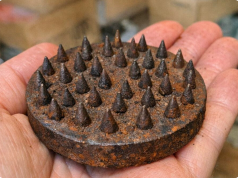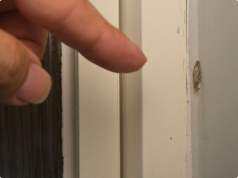That persistent itch deep inside your ear — the kind that makes you want to grab a cotton swab or wiggle your finger just to get relief — is more than just a nuisance. It’s your body’s way of sending a signal.
While an itchy ear is usually not serious, it can be a sign of an underlying issue that needs attention. And here’s the kicker: scratching or poking it can make things worse — even lead to infection or hearing damage.
So before you reach for that Q-tip, let’s explore what your itchy ear might be trying to tell you — and how to safely treat it.
Common Causes of Itchy Ears
1. Earwax Buildup (Cerumen Impaction)
Earwax is natural and protective — it traps dirt and bacteria. But when it builds up, it can:
- Block the ear canal
- Trap moisture
- Cause itching, fullness, or mild hearing loss
👉 Don’t dig it out! That’s the fastest way to push it deeper.
2. Fungal or Bacterial Infections
- Swimmer’s Ear (Otitis Externa): A bacterial or fungal infection of the outer ear canal, often caused by trapped moisture.
- Symptoms: Itching (often intense), redness, swelling, pain, and sometimes discharge.
- Fungal infections (like Aspergillus or Candida) are common in warm, damp environments.
3. Allergies or Reactions to Chemicals
Your ear can react to:
- Hair products (spray, dye, shampoo)
- Earrings (nickel allergy)
- Earbuds or hearing aids
- Scented soaps or lotions
This can cause contact dermatitis — red, itchy, inflamed skin inside or around the ear.
4. Dry Skin or Eczema (Asteatosis)
Just like your skin, your ear canal can become dry — especially in winter or with frequent cleaning. Conditions like eczema or psoriasis can also affect the ears, leading to flaking, itching, and irritation.
5. Presence of Foreign Bodies or Insects
Rare but possible:
- A small object (bead, bug, seed) stuck in the ear
- An insect crawling inside (especially at night)
This causes sudden, intense itching or buzzing, often with pain or discomfort.
How to Treat Itchy Ears — Safely & Effectively
✅ 1. Gentle Ear Cleaning (Do It Right)
- Never use cotton swabs, bobby pins, or sharp objects — they push wax deeper and risk eardrum damage.
- Instead, clean the outer ear with a damp cloth.
- For wax buildup, try ear drops:
- Over-the-counter drops with hydrogen peroxide, glycerin, or mineral oil
- Apply 2–3 drops, let sit 5 minutes, then tilt to drain
🚫 No water in the ear? Avoid drops if you suspect a perforated eardrum.
✅ 2. Treat Infections Promptly
- For fungal or bacterial infections, see a doctor. They may prescribe:
- Antibiotic or antifungal ear drops
- Steroid drops to reduce inflammation
- At home:
- Keep the ear dry — use a shower cap or cotton ball with petroleum jelly
- Don’t swim until healed
✅ 3. Manage Allergies & Irritants
- Identify and avoid triggers (e.g., switch shampoos, remove earrings)
- Use hypoallergenic products
- For severe reactions, a doctor may recommend antihistamines or topical steroids
✅ 4. Moisturize Dry Skin
- Apply a tiny amount of mineral oil, coconut oil, or a fragrance-free moisturizer to the outer ear
- Avoid putting anything deep in the canal
- Humidify dry indoor air
✅ 5. Remove Foreign Objects — Leave It to a Pro
- Never try to remove a foreign object or insect yourself — you could push it deeper or damage the eardrum.
- See a healthcare provider. They can safely remove it with specialized tools.
When to See a Doctor
Seek medical help if you have:
- Severe pain or swelling
- Pus or fluid draining from the ear
- Hearing loss or ringing (tinnitus)
- Dizziness or fever
- Itching that won’t go away after a few days of home care
Ignoring symptoms can lead to chronic infections or permanent damage.
Prevention Tips: Keep Your Ears Happy & Healthy
✅ Dry your ears after swimming or showering — gently with a towel or a hairdryer on low/cool
✅ Avoid cotton swabs — your ears are self-cleaning
✅ Clean earbuds and hearing aids regularly
✅ Use earplugs when swimming
✅ Don’t share headphones or earbuds
Final Thoughts: Listen to Your Ears
An itchy ear might seem minor, but it’s your body asking for care — not punishment.
Instead of scratching, respond with knowledge and caution. Most cases can be resolved with gentle care, but some need professional attention.
Remember:
👉 Your ear canal is delicate.
👉 Your hearing is precious.
👉 A little itch today can become a big problem tomorrow.
So treat your ears with respect — and they’ll keep listening for years to come.
Because the best way to stop an itchy ear?
Start by putting the Q-tip down.






